
THE VOICE OF INTERNATIONAL LITHUANIA
|
VilNews has its own Google archive! Type a word in the above search box to find any article.
You can also follow us on Facebook. We have two different pages. Click to open and join.
|
Archive for 2011
- Posted by - (0) Comment
Dr. Adizes insights:
What is wrong with “occupy Wall Street and elsewhere” demonstrations?
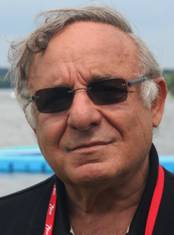
Dr. Isaac Adezis.
Let me start with the ‘bottom line’, with my conclusion: they are demonstrating in the wrong place against the wrong people.
Now, let me explain.
Most of the demonstrations have placards about greed, about how Wall Street companies and executives earn obscene sums of money while the country is truly suffering. American companies are awash in record profits while unemployment is at record highs. Something is genuinely not right… Right?
Yes, right, but what they are demonstrating against are the manifestations to the problem not the cause of the problem.
What is the cause?
The profit motive. That is where the problem is.
Imagine what would happen if medical doctors turn profit oriented and measure their success by profits. And medical schools taught them that profit should be their goal by which they should measure their success.
Many of us will die from unnecessary surgeries, go bankrupt from non ending medical bills or insurance premiums, and productivity of labor will go way, way down because we will be hospitalized to no end.
What does medical training say?
“Do no harm!!”
“The patient is first!”
- Bookmark :
- Digg
- del.icio.us
- Stumbleupon
- Redit it
Lithuania faces legal action over prisons set up for CIA rendition programme
- Posted by - (0) Comment
![]() Lawyers acting for detained militant Abu Zubaydah have begun proceedings in the European court of human rights.
Lawyers acting for detained militant Abu Zubaydah have begun proceedings in the European court of human rights.
![]()
The Lithuanian government is facing legal action in the European court of human rights over secret prisons that the CIA established in the country as part of its worldwide "extraordinary rendition" programme.
It becomes the third European government to face proceedings as a result of its support for the agency's operations, Macedonia and Poland having already been accused of breaches of the European convention on human rights.
The Lithuanian parliament has acknowledged that the CIA established two prisons with the help of the country's own security service, the SSD. One was at a riding school in a village 12 miles north of the capital, Vilnius, while the second is thought to have been at a guest house in Vlinius. The parliamentary report failed, however, to establish whether any prisoners had been held at the sites.
Lawyers representing the militant known as Abu Zubaydah say he was detained in Lithuania, and they began court proceedings in Strasbourg on Thursday. They allege that the Lithuanian government is guilty of multiple breaches of the European convention on human rights, first by allowing the CIA to fly Abu Zubaydah to the country and detain him in one of the secret prisons, and then by failing to investigate the matter itself.
- Bookmark :
- Digg
- del.icio.us
- Stumbleupon
- Redit it
Historians in the West don’t think that the Baltics and their people are important
- Posted by - (0) Comment

Dominican Father David O’Rourke, one of the two priest producers of “Red Terror on the Amber Coast.” Father O’Rourke is director of The Tatra Project (www.tatraproject.org), which provides educational resources and media on life under the former Soviet Union.
I lived and worked on and off in Vilnius, from 2000 until about 2009. Part of my work involved research in the film and photo archives that led to the documentary film, Red Terror on the Amber Coast. I was the writer and producer. I have only one point I want to make here, but I think it is important.
From the time that the Soviets first occupied the Baltics after the Molotov-Ribbentrop Pact until the fall of the Soviet system, essentially all the information about life in the Baltic Republics came from the occupying governments – Soviet and Nazi. Occupiers have their own agenda. Telling the truth about what they were doing in the countries they occupied was not one of them. To the contrary, both the Soviets and the Nazis were expert in producing self-promoting propaganda. So I believe it is both naïve and foolish to look to news and information reports produced by either of these regimes about the occupation years as though they were reliable. My own view is that relatively little concerning life during these years is known today outside these countries and their several diasporas. And very little is known because historians in the West don’t think that the Baltics and their people are important enough to their own studies to worry about.
David O'Rourke
California, USA.
- Bookmark :
- Digg
- del.icio.us
- Stumbleupon
- Redit it
- Posted by - (2) Comment
Olga Zabludoff: Reply to Donatas Januta re Holocaust in Lithuania
I love and respect Lithuanians no less than I do my American friends, both Jews and non-Jews

Olga Zabludoff
Dear Donatas,
Thank you for your gracious opening paragraph to our discussion. I will try to comment on the points you raise in your letter.
I do not dispute Dina Porat’s finding that 99.5% of the Lithuanian population was neither directly nor indirectly involved in the killing of Jews. I would not dispute the findings of any reputable researcher/historian. But what I wish to point out is that one-half of 1% of the 1941 Lithuanian population equaled about 15,000 persons. Looking at the Jewish population of about 200,000 at the time, the ratio between killers and victims was 1: 13.
That can account for high efficiency. The real problem was that the other 99.5% of the population chose to close their eyes.
"All that is necessary for the triumph of evil is that good men do nothing." This quote from Edmund Burke is the painful truth in the story of the Holocaust as well as other major tragedies. But to ask in hindsight why good men did nothing means not to comprehend the climate and the terror of the times.
No one is blaming innocent Lithuanians. I think the anger and the constant memory stem from the distortion of the history of what really took place. If only the true history were presented by teachers and texts, if only the Lithuanian people accepted the truth, I think the healing process would begin and an honest reconciliation would follow. Again I am not claiming that all Lithuanians do not accept the truth. There are certainly many notable exceptions.
Regarding the contributions of the Jews to the economy of Lithuania, if you choose not to believe Professor Dov Levin’s claims that Jews were an integral part of the economy, then let’s take a common-sense approach to the subject. The Jews were mainly merchants, traders, shopkeepers, craftsmen. They stimulated the economy with their businesses and provided a marketplace for farmers and others who needed to sell their produce and wares. Lithuania was one country and one economy. All of the participants in that economy made contributions, whether they were Jews, Lithuanians or other ethnic groups. They lived side by side, and even though the various groups carried on their individual traditions, there were still all part of one whole.
Contrary to what you are implying about my reaction to Bloodlands, I think it is an excellent book and everyone should read it. I went to Timothy Snyder’s presentation at George Washington University shortly after the book came off the press. It was extremely interesting and impressive to hear him speak and answer the myriad questions from the audience. I bought the book right there and later read it. Why would I have quoted from the book if I believed it is not a valuable work?
As for the Kazys Skirpa radio broadcasts reported in Bloodlands, if you say that this reference proved to be incorrect and has been deleted from subsequent printings of the book, I take your word for it. But that in itself doesn’t change the fact that there were bloody pogroms in Lithuania even before the Germans had arrived. This has been reported countless times in survivor testimonies and historical accounts. It ushered in the Holocaust in Lithuania. Another fact that has been reported for 70 years by survivors, witnesses and historical accounts is that the Germans received all the help they needed from Lithuanian locals who were eager accomplices.
I find it very sad when you say, “I still don’t know why the Lithuanians can’t simply grieve their own tragedy, and the Jews grieve theirs.” All people should grieve over tragedies that involve the loss and suffering of others and should mourn the victims, regardless of their nationality or race. It seems cold and indifferent to separate out who should be mourned by whom.
During my three lengthy trips to Lithuania, I have made deep and lasting friendships with a good number of Lithuanians. I love and respect them no less than I do my American friends, both Jews and non-Jews. I cannot imagine that my Lithuanian friends could ever live in a different compartment of my heart.
In your final sentence you write, “The Lithuanians and the Jews both suffered greatly during World War II – or do you disagree with this as well?”
How could I possibly disagree with the truth? You can even go further and say the Lithuanians suffered beyond World War II during the second Soviet occupation that lasted almost fifty years. But there is one major difference: the goal of the Nazi regime was total annihilation of European Jewry – genocide. They came close to succeeding in Lithuania. The Soviet regime imposed deportations, imprisonment, death and suffering on the Lithuanian nation, but the majority of the Lithuanian population survived. While many perished in Siberian gulags, larger numbers eventually returned home to Lithuania. Both the Nazi and the Soviet regimes were heinous, but there was only one genocide. That fact should be acknowledged so that the history of World War II will not become distorted.
Olga Zabludoff
- Bookmark :
- Digg
- del.icio.us
- Stumbleupon
- Redit it
- Posted by - (2) Comment
Donatas Januta: Reply to Olga Zabludoff re Holocaust in Lithuania
Why can’t the Lithuanians simply grieve their own tragedy, and the Jews grieve theirs?

Donatas Januta
Dear Olga:
Of the numbers of Lithuanian Jews that were killed in 1941-1944 I have seen several numbers, all of which were around 90% or more. If you feel more comfortable with 95-96%, I won’t quarrel with you. The fact is that any such number is an enormous number, and it was and is a great tragedy. If there was anything that I could do to undo it, I would.
But you don’t seem to dispute the Israeli historian Dina Porat that 99.5% of the Lithuanian population was neither directly nor indirectly involved.
As for your claim that the Jews contributed “enormously” to Lithuania’s economy and culture, you quote that wealthy Jews lent money to the “Lithuanian authorities” when they got into financial trouble. But that was in centuries past, and those Lithuanian authorities were either individual warlords, or the Polish kings of the joint commonwealth, who got into personal financial trouble due to their extravagant lifestyles. And all those Jewish loans then went into their own private pockets. And, of course, the Jewish lenders did not act solely out of a sense of charity; they received more than a quid pro quo. The Lithuanian nation, i.e., the people of Lithuania, however, did not benefit at all from letting those same “Lithuanian authorities” continue living their extravagant lifestyles, at, ultimately, the people’s expense. That's why those Jewish "contributions" to the Lithuanian nation's economy were, as I said, either ziltch, or perhaps less than ziltch.
And what about the “enormous” Jewish contributions to Lithuanian culture that you mentioned. I am waiting to be enlightened on what it is you think they were.
Regarding your criticism of my “interpretation” of Timothy Snyder’s “Bloodlands”, all that I said was that it is a very good book, and everyone should read it. So, are you saying that it is not a very good book, and people should not read it?
As for your quote from “Bloodlands” (pp. 191-192) regarding Kazys Skirpa and his so-called radio broadcasts urging bloodshed, I understand that the author has acknowledged that that is incorrect, that he was relying on someone else’s research, who was either mistaken or simply falsified it. The author has advised that in subsequent printings of the book, that reference has been deleted. If you like, check with him yourself.
I still don't know why the Lithuanians can't simply grieve their own tragedy, and the Jews grieve theirs. I did not start this dialogue, but was merely replying to Didier Bertin and yourself. As I said, before, the Lithuanians and the Jews both suffered greatly during World War II - or do you disagree with this as well?
- Bookmark :
- Digg
- del.icio.us
- Stumbleupon
- Redit it
- Posted by - (0) Comment
1st of November is
All Saints’ Day

November 1st, people of the Christian Faith all over the world celebrate All Saints’ Day. In Lithuania it is one of the most solemn of holidays. This day is set aside as a day to honor the souls of family members that have passed away as well as remembering the Saints of the Catholic Church.
- Bookmark :
- Digg
- del.icio.us
- Stumbleupon
- Redit it
- Posted by - (1) Comment
1st of November is
All Saints’ Day

November 1st, people of the Christian Faith all over the world celebrate All Saints’ Day. In Lithuania it is one of the most solemn of holidays. This day is set aside as a day to honor the souls of family members that have passed away as well as remembering the Saints of the Catholic Church.

November 1st, people of the Christian Faith all over the world celebrate All Saints’ Day. In Lithuania it is one of the most solemn of holidays. This day is set aside as a day to honor the souls of family members that have passed away as well as remembering the Saints of the Catholic Church.
While in modern times, this day involves visits to cemeteries to decorate graves, attending Church and get togethers with family, the meaning of this day and some of its traditions go back to ancient times and it is interesting to see how some of these ancient traditions have intertwined with the traditions of the Christian Faith in Lithuania today. To this day, you will still hear most Lithuanians refer to All Saints’ Day as “Vėlinės” which was a holiday going back to pagan times that celebrated the souls of dead ancestors with feasts and special rituals. History is not exactly clear about this but it is known that the feasting and rituals did not take place on one specific day but rather continued over the course of a number of weeks. In ancient writings this ritual is called " Ilgės" - pangs of love or longings. The name comes from the fact that this ritual went on for a long time - long ritual. In Eastern Lithuania, this ritual was called " Dziedu" days, old men's days. This name was related to beggars who were asked to pray for the souls of the dead.
The ritual traditions of the dead were and still are today directly related to peoples' belief that on this day the souls of the dead return to earth to Churches, cemeteries or their homes. The most ancient belief is that they returned to their homes. Therefore the souls of the dead were and still are graciously received and treated according to rituals of our ancestors. In the 1500s some of the practices began to change to more of what is common these days. Now it became common for people to gather in cemeteries, where people would pray for the deceased and comment to each other about all the good qualities of the departed person. Afterwards a bountiful supper would be prepared for all to enjoy. Now when it is said “for all to enjoy” it is meant ALL – including the departed. This is based on the belief that “the soul of the dead cannot rest if the table is not set”. In the Žemaitija region of Lithuania there is this traditional prayer that is given by the father of the house.
“Dear souls of the dead, you are still remembered by the members of my family, you are most worthy of our perpetual remembrance, especially you, my grandparents, my parents, also our relatives, children and everyone whom death took away from our home. I invite you to this annual feast. We wish that this feast is agreeable to you, just like memory of all of you, is to us”
After a short silence, the father asks everyone to sit at the table and the food is eaten in silence.
Another practice was that on the eve of All Saints’ Day tables would be set with food in the evening, in rooms with doors and windows ajar to allow the souls of the dead, easy entry. Also, soft beds were prepared with white bed linen for the anticipated guests. Blessed candles were then placed and lit on either side of the pillow and the family knelt near the bed awaiting the arrival of the soul of their dead family member. If they heard cracking in ceilings or floors, this meant that the dead souls had arrived.

Even as late as the early 1900s, in some parts of Lithuania, an assortment of food was brought to cemeteries and left there. Upon returning home from the cemetery a dinner of seven different foods of meat, grains and eggs was prepared and the table was set in a room with windows and doors open wide to allow the souls to enter as it was believed that the souls of the dead partook of the meal together with the living members. No one sat at the corner of the table as this spot was reserved for the souls of the departed. An assortment of food was also placed on that corner of the table and then everyone began to eat.
In Lithuania, the belief that souls of the dead come for a visit during All Saints’ Day has lasted to this day. The traditions of honoring the dead that are practiced today began in the mid 1800s. The most common practices are joint visits to cemeteries, decorating of graves, lighting of candles and prayers. So Monday 1 November I will do what millions of Lithuanians will do around the world - honor my ancestors. The day will start by me driving around to different homes in Vilnius to pick up some of my relatives that no longer drive. We will make the forty five minute drive from Vilnius to Guronys which is the ancestral home of my grandfather’s family Karnila and my grandmother’s family Petkevičius. As always, we will go to the two “old cemeteries” first. Here will be the meeting point for other members of the family since on this day, the same as with so many Lithuanian families, we have family members from near and far traveling to our ancestral home.
The oldest of the two “old cemeteries” in Guronys is where my great grand father Vincentas and my great grandmother Kristina are buried. I actually go to this cemetery quite often in the course of a year’s time. When ever I am driving through the area I’ll stop by for “a visit”. I think you can understand that it gives me a very warm feeling inside to be at the final resting place of my ancestors especially when I can look three hundred meters away and see the spot where their house once stood. I don’t mind telling you though that when I “visit” Vincentas and Kristina on All Saints’ Day there is very much a different feeling. On this day, you get this very strong feeling that they are there with you and they can feel your feelings and hear your thoughts. Now I’m sure that among our dear readers there are those in the scientific and medical fields that could very aptly explain these feelings. Sincerely I can tell you that I would like hear these explanations. Please don’t be offended though when I ask that on this day, All Saints’ Day, don’t give me the scientific explanation for these feelings. On this day I’m having too much fun “visiting” with my ancestors.
From one cemetery to another and another, candles will be lit, prayers will be given, gravesites will be decorated and at the grave of each person we will stand and talk about their fine qualities and the things they accomplished in their life, the same as has been done for hundreds and hundreds of years. The visits to one cemetery to another is not only for the members of the Karnila and Petkevičius families. This also includes visiting the graves of the wive‘s and husband‘s families as well so all and all it‘s an all day affair.

Once we have visited and paid our respects to all the departed most of the group, this is usually six to eight carloads of people, will gather at the home of one of the families that live near by. Here we will go inside and socialise and enjoy a wonderful meal. Of course, it goes with out saying that at one corner of the table a place will be set with a plate, silver ware and drinking glass and no one will begin eating until food has been placed on and near this plate and drink has been poured into the glass. After all, this day is for our ancestors and it would be impolite to start eating before they are served at the table.
The drive home is very pleasant. There is much conversation about the family. Its history, notable events, hardships that were borne, accomplishments and joyous occasions. During the drive home you also behold a very glorious sight. The sun has set, it is dark and all along the way you drive by cemetery after cemetery that are all aglow with the candles placed their by the cemetery’s inhabitant’s loved ones. This is truly a magnificent and heart warming sight to experience. Probably the most pleasant experience of the drive home is the feeling you have inside you. You have spent the day with family. Not just the family members that had traveled from near and far to pay their respects, but you have spent the day with your ancestors and departed loved ones. I think you would all agree that to spend the day with your ancestors is always a wonderful experience and one which leaves you with a warm feeling in your heart.
Su pagarbe
Vincas Karnila,
Associate Editor
The origins of All Saints’ Day go back to ancient times as do also some of the beliefs. While some would say that these “beliefs” are basically superstitions, to this day there are many people that still believe in many of them. I thought you may find interesting some of the beliefs that are held by some people in Lithuania to this day. While one may believe none of them, another in only a few another person may believe in many.
The beliefs of All Saints' Day are:
1- On the day of All Saints, the souls of the dead come to visit the living, asking that the living pray for them.
2 - Before All Saints' Day, a homemaker will sweep the house and sprinkle the floors with sand. In the morning, if she sees the floor covered with small footprints, but there are no small children in the house she would believe that souls of dead children had come into the house.
3 - If a mother goes to the cemetery at midnight on All Saints' Day, she will see her dead children.
4 - On All Saints' Day, churches are filled with souls of the dead. That day, the souls are not burning in hell. They are happy. However some souls, whose mothers are wailing, arrive wet, soaked by earthly tears. Moral of the story - No need to cry for the dead.
5 - On the Eve of All Saints' Day, one does not go visiting or walking through villages because all roads and the country side are filled with souls of the dead. There can also be some mean souls.
6 - On All Saints' Day and in the evening no ashes or garbage should be taken out because the souls can be witched by these items.
7 - If it rains on the night of All Saints' Day, there will be numerous deaths the following year.
8 - If the sun does not shine on All Saints' Day, the following year will be filled with misfortunes.
9 - If on All Saints' Day, trees are still fully covered with leaves, it will be a year of black death.
10 - If a child is born on the eve of All Saints' Day, when in life they attend a funeral meal, they will see evil souls.

- Bookmark :
- Digg
- del.icio.us
- Stumbleupon
- Redit it
Lithuania welcomes EU’s last ditch deal, saying the resolve finally showed by EU heavyweights should stop the debt crisis from spreading
- Posted by - (1) Comment
![]()

Angela Merkel and
Dalia Grybauskiate
Lithuania Thursday welcomed a last-ditch deal to shore up the currency bloc, saying the resolve finally showed by EU heavyweights should stop the debt crisis from spreading.
"We've witnessed much more resolve from major EU countries," Prime Minister Andrius Kubilius said in a radio interview.
"Now we see much more political effort to find solutions to problems that have not been solved for almost one and a half years," he added.
Leaders from the 17-nation eurozone meeting overnight in Brussels reached a deal early Thursday to fix their festering debt crisis, boosting a bailout fund to a trillion euros, pledging new money for Greece and pushing banks to take a 50-percent loss, or "haircut", on Greek debt.
They acted amid raging concerns that the crisis could spiral, with Italy in the spotlight.
Lithuania's President Dalia Grybauskaite -- who attended Wednesday's summit of all 27 EUnion members held before the eurozone talks -- said she expected the deal to provide a buffer.
"These decisions, if implemented swiftly, are very useful, as the problems will be stopped in southern Europe and will not spread north," Grybauskaite, the EU's former finance commissioner, told the Baltic News Service.
Lithuania aims to adopt the euro by 2014.
- Bookmark :
- Digg
- del.icio.us
- Stumbleupon
- Redit it
- Posted by - (7) Comment
Mr. Januta twists facts and figures
to suit his arguments

Olga Zabludoff
By: Olga Zabludoff
Washington, DC, USA
Mr. Januta’s article goes right to the heart of the problem: the tendency of critics like him to accuse others of being misinformed and of misstating facts. Indeed it is Mr. Januta who twists facts and figures to suit his arguments. Even when his facts are “correct,” they are simply half-truths.
For example: Yes, there is a Holocaust Museum in Vilnius, but to compare the pitiful little hidden building (the Green House) with the state-of-the-art Museum of Genocide located on a major street is like comparing a mouse to an elephant.
It hardly pays to argue with Januta because his reasoning is obviously skewed and his facts distorted. For example: 95-96% of the Lithuanian-Jewish population was murdered in the Holocaust in Lithuania. His figure is 90%.
In his book Professor Dov Levin speaks of two evils -- but of only one genocide, another confusion in Mr. Januta’s mind. Furthermore, his ridiculous claim that the Jews of Lithuania contributed “zilch” to the economy and culture of the country is contradicted by Dov Levin in his book: “The majority of the Jewish population worked at every possible trade, serving not only their own community but also the population at large.” (Introduction, p. 11) Even going back to the Middle Ages, Dov Levin writes: “On more than one occasion, when the Lithuanian authorities got into financial (or other) difficulty, the country’s wealthiest Jews came to their aid with generous loans or grants of credit.” (p. 44) “The Jews’ deep penetration into the Lithuanian economy also created extra employment for the general population.” (p. 50)
Januta’s interpretation of Timothy Snyder’s Bloodlands is an injustice to the author’s careful research and articulate writing. Here is an excerpt that Mr. Januta obviously missed:
“The Germans arrived in Lithuania with their hand-picked nationalist Lithuanians and encountered local people who were willing to believe, or to act as if they believed, that Jews were responsible for Soviet repression. The Soviet deportations had taken place that very month, and the NKVD had shot Lithuanians in prison just a few days before the Germans arrived. The Lithuanian diplomat Kazys Skirpa, who returned with the Germans, used this suffering in his radio broadcasts to spur mobs to murder. Some 2,500 Jews were killed by Lithuanians in bloody pogroms in early July.
“As a result of trained collaboration and local assistance, German killers had all the help they needed in Lithuania.” (pp. 191-192)
No need to say any more. fdfdg says it all in his Comments.
- Bookmark :
- Digg
- del.icio.us
- Stumbleupon
- Redit it
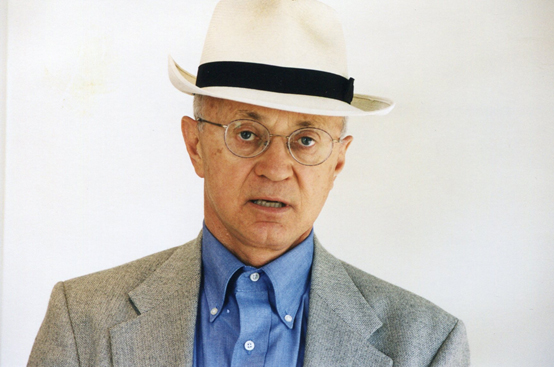
By Donatas Januta
Mr. Didier Bertin is either woefully misinformed or intentionally misstates facts in his “reply” to Yves Plasseraud’s article “Lithuania and the memory of the Shoah (Holocaust)”.
He refers to the crimes of Hitler and Stalin as the “Double Genocide” theory, states that the comparison of the two is initiated by Lithuania and/or its government, and that the reason for it is to somehow minimize the tragedy which the world’s Jews suffered during the Second World War. But the comparison between the tragedies brought by those two psychopaths, Hitler and Stalin, is not of Lithuanian origin or usage at all.
Mr. Bertin chooses not to give credit where credit is due. The comparison between Hitler’s and Stalin’s crimes was first made and thoroughly analyzed by the prominent Israeli historian Dov Levin, in his book “The Lesser of Two Evils”. Three things are clear to anyone who has read Dov Levin’s treatise: (1) Levin was definitely and scrupulously comparing the two, as he inevitably had to do to arrive at his conclusion which of the two was the lesser evil. (2) He was evaluating the two evils solely from the Jewish perspective, and in his conclusion he uses the word “lesser” not in the universal sense, but only with respect to the effect upon Jews. (3) Because Levin, even in the title of his book acknowledges, that there was not one but two evils – if there was only one, there would have been nothing he could have compared it to – that still leaves two for analyzing their effect on the rest of the world.
Levin did not use a modifier to describe the effect of the two evils on non-Jews i.e., he did not state whether as to non-Jews the two evils of Hitler and Stalin were or were not equal, or similar, or equivalent. But neither does Lithuania. I have not run across the Lithuanian government or Lithuanians using the term “Double Genocide”.
Lithuania’s position is simply – you grieve for your tragedy, and we will grieve for ours. Just as every person, every family, so every nation, every ethnic group, is entitled to grieve for their own separately from the grief of others, so are the Jews, the Ukrainians, the Cambodians, the Armenians, and others. So are the Lithuanians.
Bertin further states that Lithuanians are not entitled to use the word “genocide” at all in reference to their own tragedy because “Lithuanian people still exist and are active in Lithuania”, i.e., that Hitler’s, and Stalin’s, attempts to wipe them out were not successful. Yet, he refers to the killings of Armenians, Rwandans, and Cambodians as being “real genocides”. But Armenians in Armenia, Rwandan’s in Rwanda, and Cambodians in Cambodia also still exist and are active in their countries, are they not? (Bertin conveniently forgot to mention the genocide of the Ukranians, which, of course was perpetrated by that “lesser” of the two evils.)
Yes, 90% of Lithuanian Jews were killed during World War II. And, yes, there were some German-organized Lithuanian militias or “Lithuanian auxiliaries” who participated in some of those actions. But how many Lithuanians were in those “Lithuanian auxiliaries”? The Soviets during that period also had a Division, the 16th Rifle Division, which they referred to as the “Lithuanian 16th Rifle Division.” But because most soldiers in this “Lithuanian” division did not speak Lithuanian, the commands were given not in Lithuanian, but in Yiddish and Russian. So, just how “Lithuanian” was this 16th Soviet Division were commands were given not in Lithuanian but in Yiddish and Russian? And how “Lithuanian” were those “Lithuanain auxiliaries” which partook in German-organized and German-led killing of Jews?
Here is a quote from testimony of an ethnic Pole, a member of one of those “Lithuanian Auxiliaries”, also referred to as “Special Detachments”, which testimony is in the possession of the US Justice Department’s “nazi hunting” department, the Office of Special Investigations (OSI):
The Pole, Jan Borkowski, testified how the Russian Dolgow recruited him into the German organized “Lithuanian Auiliary”: „Dolgow and I entered the building through Wilenska Street and went to the second floor... In my presence [someone] personally filled out my name in the questionnaire in Lithuanian and I signed it after Jan Dolgow had translated it to me. My name in the questionnaire was written in Lithuanian as Jonas Barkauskas, son of Ignas. The questionnaire also included my date of birth, rank in the Polish army, and similar information. That day I also received a certificate stating tha I was employed in the Special Detachment and that I had a right to possess a firearm... I received an identification card, filled in Lithuanian.” (Protocol of Interrogation of a Suspect – Jan Borkowski, 29 January 1973, U.U. v. Dailide, Document 580–655, Bates No. 07821–07823.”
Borkowski further admitted that he participated in executing Jews at Ponary, that he has no remorse in having participated, but he expressed regret for having worn a Lithuanian uniform while doing so: „I was ashamed, however, that I was a Pole and had to put on the uniform of the bourgeois Lithuanian army.” (Bates No.07882).
And should the fact that Lithuania was one of the few, and perhaps the only, German occupied country where the Germans, despite repeatedly trying, did not succeed in establishing a local ethnic SS, should that not give pause for thought as well?
Just a bit more of statistics. According to Israeli historian, Dina Porat, about 0.5%, i.e., half of one percent, of the entire population of Lithuania was involved directly and indirectly, i.e., whether prison guards, drivers, etc., in the killing of Jews. (And how many of your French, Mr. Bertin, were involved in rounding up France’s Jews and shoving them into railroad cars heading straight for Auschwitz?) Porat does not however state how many of that 0.5% were Jan Borkowski, Jan Dogow, and similar “honorary” Lithuanians. The number of Lithuanians who have been identified as having, at the risk of their own lives, saved Jews from the Holocaust, is on the same order of magnitude.
Bertin’s statement that Lithuania is the sole country that “tries to prosecute Holocaust Survivors and members of the resistance against Nazis” flatly contradicts the facts. In 2007, the Polish government forwarded information and asked the Lithuanian government to investigate the slaughter, on January 29, 1944, by Soviet partizans/bandits of Polish and Lithuanian civilian villagers at Kaniukai (“Koniuchy”). Those partizans/bandits were not just anti-Nazis, their main goal was to bring Stalin’s communism, with its demonstrated terror, back into Lithuania.
Here is testimony of two of those “anti-Nazi” Soviet Jewish partisans regarding their actions at Kaniukai. Abraham Zelesnikow: “Partisans came around the village, everything was torched, every animal, every person was killed. And one of my friends, acquaintances, a partisan, took a woman, put her head on a stone, and killed her with a stone.” Zalman Wylozni: “the entire village of 80 farmsteads was burned to the ground and its inhabitants were murdered.”
The villagers were slaughtered because they defended their and their families’ lives and livelihoods, as the partizan/bandits have themselves admitted: Joseph Harmatz: “We came in like bandits and, after all, we were robbing the local peasants of their livelihood. . . . Gradually the villagers ... became our enemies.” Rakhil Margolis: “I could not stomach going to [these “requisitioning” expeditions]. I was so ashamed of entering a cottage and demanding from the peasants potatoes, flour, especially livestock – sheep, cows. The women cried, the men cursed. . . . there were many “underworlds” types in our detachment – former thieves and swindlers for whom robbery was an habitual thing.”
So, on the basis of Poland’s request and this type of information, the Lithuanian government sought to question, not to prosecute, but merely to question as witnesses, some of the admitted witnesses in that indiscriminate slaughter of civilian villagers. The result was an almost hysterical reaction from Efraim Zuroff and his followers, claiming that Lithuania was persecuting Holocaust survivors.
If someone wants to learn historical facts, and not just listen to political polemics based on red herrings like the so-called “Double Genocide” theory, you should read professor Timothy Snyder’s “Bloodlands” about the conditions in Lithuania and Easterm Europe during World War II. Or better yet, start with Israeli historian Dov Levin’s “The Lesser of Two Evils.”
At the end of his article, Bertin, reminds us that many Russian soldiers died fighting the Nazis, as if Lithuanians should be thankful to the Russians. But if Russia’s Stalin had not signed the infamous non-aggression treaty with Hitler in 1939, where Stalin gave Hitler free hand to invade and occupy Poland, and to thus start World War II, those Russians would also not have needed to die. And the tragedy of the Holocaust might not have occurred either. So, go ahead, Mr. Bertin, do thank the Russians.
There are other incorrect and misleading claims in Didier Bertin’s, as well as in Olga Zabludoff’s, “reply” to Yves Plasseraud. Like the simple fact that in addition to the Genocide Museum of the Lithuanian tragedy, there is also nearby in Vilnius a Jewish Holocaust Museum, which is funded by the Lithuanian government and administered by the Lithuanian Jewish Community, and which covers exclusively the Jewish tragedy of World War II.
And, please, Olga, spare us your crocodile tears under your fancied claim that the “contributions” of Jews “to Lithuania’s economy and culture were enormous” and that the Lithuanian government is ignoring it. The contribution of Jews to Lithuania’s economy and culture, over the 600 years that they lived in Lithuania, was either zilch or less than zilch. Let me explain.
Lithuania, on the eve of World War I, was as backward a country as the rest of the Russian Empire. Due to the Czarist Russian empire’s occupation and oppressive colonialism policies for over 100 years, Lithuania’s economy was depressed, it was an agricultural economy, but with Lithuanians being barely more than subsistance farmers. Its culture was marked by almost total illiteracy, due to Russia’s restrictions on the use of the Lithuanian language. I have no idea what Olga Zabludoff has in mind when she refers to the “enormous” economic and cultural contributions of the Litvaks to the Lithuanian nation. There were none. Lithuania was economically and culturally exploited and oppressed.
For 600 years Litvaks lived side by side with, but separate from, Lithuanians. Indeed, Jewish historians have noted that of all of Europe’s Jews, those of Lithuania interacted the least with the ethnic people among whom they lived. And they have further noted, that this self-insulation allowed the Jews to maintain, preserve and develop their unique culture with the least amount of outside influence. A number of Jewish scholars note that the Jews in Lithuania were able to do this, because they considered the Lithuanians inferior to them.
Zabludoff also laments that Lithuanians are striving to preserve and extol their own history without simultaneously extolling the history of its Jews. And how much time do Jews devote to preserving or extoling Lithuania’s history when they extol their own? If the small country of Lithuania doesn’t beat its own drum, there is noone else who will do it for them.
Litvaks, are certainly neither unknown, nor ignored, nor hidden from the world, nor do they lack anyone to beat their drums. Litvaks’ vast contribution to world knowledge, science and the arts over the last 100 years probably has no parallel in any other group. And we have all benefited from their talents and intellect. But this has happened in the last 100 years in the West. It was not the case in Lithuania for the 600 years up to World War II. Lithuanians were peasant farmers, Jews were urban merchants and tradesmen. Their cultures did not intermix.
And certainly it should not be surprising if the small country of Lithuania, as Zabludoff says, cannot appease far-right extremists, if such a prominent scholar like professor Timothy Snyder is unable to do so. Just look at the attacks by Efraim Zuroff and his followers on Snyder’s book “Bloodlands”, which otherwise has received an extremely favorable reception throughout the world.
The Jews of Lithuania and the ethnic Lithuanians both suffered terribly during World War II. But, just as they had lived for 600 years, side by side but separate, so they suffered their tragedies separately. Thus, it may be that Lithuanians and Jews will never agree on the events of World War II, because they are each viewing them from a separate reality. But that should not be cause for playing fast and loose with historical facts, as Diedier Bertin and Olga Zabludoff, have done.
- Bookmark :
- Digg
- del.icio.us
- Stumbleupon
- Redit it
“Facing History: The Burden of 1941”
- Posted by - (0) Comment
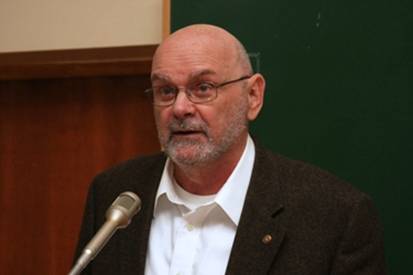
Dr. Saulius Suziedelis.
Scholar of Lithuania’s Holocaust history.
Photo: www.komisija.lt/lt/naujiena.php?id=1301995164
By Ellen Cassedy
“The only way for Lithuanians to lighten the difficult history of 1941 is to embrace it.”
The writer of these words, Dr. Saulius Suziedelis of Millersville, Pennsylvania, USA, will be honored in Vilnius on November 18, 2011, by the Lithuanian Ministry of Education and Science.
Also receiving awards will be Dr. Vytautas Cernius, a longtime professor of education at Temple University in Philadelphia, Pennsylvania, and Dr. Arvydas Kliore, a space scientist with NASA. The prizes for intellectual achievement are awarded annually to Lithuanians living abroad.
- Bookmark :
- Digg
- del.icio.us
- Stumbleupon
- Redit it
- Posted by - (1) Comment
Good news for Lithuania!
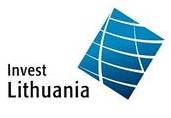
1) Now ranked ahead of France and Belgium

Lithuania is ranked 27th out of 183 countries in the global business environment ranking "Doing Business 2012" recently published by The World Bank.
Lithuania is ranked higher than Belgium, France, the Netherlands, Luxembourg, Spain, Greece, Austria and Italy.
Lithuania has been rated particularly high in the Property Registration category (7) and the Contract Enforcement category (15).
Moreover, Lithuania has stepped even by 28 positions up to the 65th rank in the Protecting Investors category. It has been also noted in the report that Lithuania facilitated tax administration over the year as well as improved conditions for trade across borders by reducing the time spent at customs.
- Bookmark :
- Digg
- del.icio.us
- Stumbleupon
- Redit it
2) Baltic States growing quickest in the EU
- Posted by - (0) Comment
![]()

In its recent Eurozone forecast produced in cooperation with Oxford Economics, Ernst & Young says that in the second quarter (Q2) of 2011 three Baltic economies grew most in the EU: Lithuanian gross domestic product (GDP) grew by 6.3 percent, Estonia posted growth of 8.4 percent, and Latvia's economic output increased by 5.7 percent.
Lithuania's Q2 GDP growth only proved the trends of recovery in country’s manufacturing industry, Ernst & Young says. In June, new industrial orders went up by as much as 5.6 percent, which raised the annual growth rate to 28.4 percent, the biggest growth in the EU.
Ernst & Young predicts that Lithuanian GDP will grow up to 5.5 percent this year, and will continue increasing at a stable pace up to 4.2 percent in 2012 and by 6.2 percent in 2013.
Estonia’s GDP is expected to grow by 7.2 percent in 2011 and to slow down to 3.8 percent in 2012. Latvia's economy is expected to grow by 4 percent this year, 3.5 percent in 2012 and 5.8 percent in 2013.
- Bookmark :
- Digg
- del.icio.us
- Stumbleupon
- Redit it
![]()

James Morsink, head of IMF monitoring mission.
We can see a great recovery in Lithuania‘s economy, determined highly not only by global financial environment, but by active actions of the government as well. The recovery of economy reflected both global upturn and strong political actions, including quite large fiscal consolidation, preservation of trust in bank systems, also significant adjustment in wages which brought a higher competitive ability,” James Morsink, head of an IMF monitoring mission to Lithuania, said after the meeting with Lithuanian Prime Minister Andrius Kubilius. He called Lithuania a "model of successful adjustment" in the face of the global economic crisis.
According to Morsink, the actions mentioned above helped Lithuania’s economy to grow by 6.25 percent of GDP in the first half of 2011.
“However, the slowdown in Euro zone will not bypass Lithuania as well. It’s export, which is named as the major engine in economic increase of late years, will slowdown, so we forecast that next year the growth will reach 3.5 percent”, – the representative of IMF claimed.
"It's very important to take further measures that will preserve macroeconomic stability," Morsink said after meeting with Lithuanian Prime Minister.
- Bookmark :
- Digg
- del.icio.us
- Stumbleupon
- Redit it
![]()

Val Samonis.
There never seems to be any serious attempt at reform in the EU; just plans to talk about later plans, und so weiter und so weiter!
The end result?
Europe will split into North (neuro) and South (seuro) monetary zones and their satellite economies. Further disintegration and conflict within and between those two zones will deepen as Europe reverts to its old notorious historical habits; coupled with the spreading Middle East War, all bets are off: riots, ethnic & religious strife, energy and food prices skyrocketing, to name a few. European demography and therefore economy is getting catastrophic (dependency ratios increasing rapidly) as young people are already abandoning Europe (like a Titanic), esp. Greece, Poland, etc, heading for the New World (esp. Canada, US, Brazil, Australia).
Greetings from Toronto,
Val Samonis, PhD, CPC
The Web Professor of Global Management(SM)
- Bookmark :
- Digg
- del.icio.us
- Stumbleupon
- Redit it
- Posted by - (5) Comment
Dr. Adizes insights:
What is wrong with “occupy Wall Street and elsewhere” demonstrations?
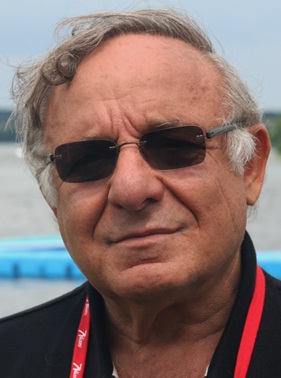
Dr. Isaac Adezis.
Let me start with the ‘bottom line’, with my conclusion: they are demonstrating in the wrong place against the wrong people.
Now, let me explain.
Most of the demonstrations have placards about greed, about how Wall Street companies and executives earn obscene sums of money while the country is truly suffering. American companies are awash in record profits while unemployment is at record highs. Something is genuinely not right… Right?
Yes, right, but what they are demonstrating against are the manifestations to the problem not the cause of the problem.
What is the cause?
The profit motive. That is where the problem is.
Imagine what would happen if medical doctors turn profit oriented and measure their success by profits. And medical schools taught them that profit should be their goal by which they should measure their success.
Many of us will die from unnecessary surgeries, go bankrupt from non ending medical bills or insurance premiums, and productivity of labor will go way, way down because we will be hospitalized to no end.
What does medical training say?
“Do no harm!!”
“The patient is first!”
Doctors need to get paid, but it is not the pay that SHOULD drive their decision-making. I emphasized the word “ should” because in reality some doctors do succumb to the pressures of society to measure themselves by how much they earn and have compromised their professional judgment for the sake of making money. But they are the anomaly, not the norm, while in business, IT IS the declared, legitimate, sought after norm.
And what happens than?
Look how the pharmaceutical companies behave. To get repetitive, sustainable, profits, they supposedly develop new drugs. In reality, they are doing continuous improvement to old drugs and calling them new drugs to justify their R and D expense. (I have inside information.)
Are they really patient oriented or see the patients as a source of opportunities to make money. So they discover diseases that need treatment although the treatment and even the disease, there is doubt about their severity or dysfunctionality. .
Pharmaceutical companies are making tons of money while the country is going bankrupt as health care expenses are getting out of hand.
But what I am describing here is happening not only with the health care industry. It is happening with the whole business world. Each CEO is trying to make better earnings per share especially if the company is in the stock market. If his earnings per share are below the ones of competition and repetitively so, the CEO will be replaced.
There is no shame in focusing on profits. That is what business schools teach, and schools of economics justify with endless logical mathematical proofs.
To increase profits and have them grow sustainably, companies invent goods and services, whose social justification is marginal at best and penetrate new markets, where the benefits to the new market are questionable. We know for instance that cola drinks are full with sugar. Causing obesity. Causing heart attacks. Still we export them worldwide. And fried food also causes obesity and high blood pressure and a myriad of other diseases. Los Angeles local government has forbidden opening of fast food outlets in poor parts of the city. Poor people use fast food as their nourishment; they have no money and do not know better. But, we nevertheless export those same products to any poor country we can and destroy their health. And make money.
The whole system is profit oriented to the detriment of the market it serves.
I am not pointing a finger at the CEOs, by the way. Individually, they are conscious, spiritual people, or at least some of them. It is the system that causes them to behave a certain way. It is the system of rewards and punishment. “When you join a circle dance you have to dance like the rest “ is a Balkan expression.
What to do?
Business leaders should be professionals. Like MDs. Put the client first. “Do no harm!”
Instead of profit being the goal, it should be the limitation. In other words: “serve the clients — profitably !!!” should be the goal, rather than “Increase profitability and let the customers beware”…”they are grown up”…”information is available”….”free choice etc”…” I consider all these statements fig leaves to cover greed.
So, where should the demonstrators demonstrate? In front of the business schools and schools of economics where they indoctrinate business leaders, where the legitimization of profits is done.
The profit motive is deeply ingrained in our education. One reason for that is that profit provides a goal that can be quantified.
Quantification of goals enables professors to develop beautiful mathematical models and theories which they would not have been able to do otherwise. Client orientation, professional treatment of clients, and not doing harm, are not easily quantifiable. With the profit measurement, big corporations, especially the multi nationals, can be controlled: There is a measurable criteria of success or failure. With non-quantifiable criteria like professionalism, and client true care of, such controls could not be as accurate.
We have developed a whole ideology of business which would rather be precisely wrong than approximately right.
MY hero is not Welsh of General Electric. “The burn and slice “ executive who made ROI the idol to worship.
My hero is Steve Jobs who loved his clients, his application developers, his computer developments. And the customers loved him in return. So did the developers. So did the employees; people fought to get hired by Apple.
Do you really think that Steve Jobs could have developed Apple into the most valuable company on earth if he was just profit motivated?
Profit was the result of the love he has had for everything he has done.
Here is a quote from him: “Remembering that you are going to die is the best way I know to avoid the trap of thinking you have something to lose. You are already naked. There is no reason not to follow your heart.” Steve Jobs
Did he say anything about making as much money as you can before dying?
He followed the heart and our business education has nothing about following the heart. All courses are on how to make more and better MONEY. I know I taught in several business schools.
When a person knows he is facing certain death, the real truth what life is about comes out. And it is love. Love for whatever we do.
I, and I bet you too, will go to a doctor that loves his profession more than he loves his wallet. And I want to train, develop managers, executives who love more what they do for their customers profitably, than how much profit they have made.
Conclusion: The demonstrators are demonstrating the leaves of the tree, not its roots. Because they apparently do not see the roots. They demonstrate what they see.
I wish they would demonstrate in front of Harvard Business School, the Kremlin of business education, the school who led and still leads those who train those who are being demonstrated against.
Demonstrate in front of the Chicago School of Economics where Milton Friedman got a Nobel Prize for defending religiously that the purpose of business is business.
They are the culprits. We are the victims.
Sincerely,
Dr. Ichak Kalderon Adizes
This entry was posted on Friday, October 28th, 2011 at 11:39 am and is filed under English, Policy Issues. You can follow any responses to this entry through theRSS 2.0 feed. You can leave a response, or trackback from your own site.
- Bookmark :
- Digg
- del.icio.us
- Stumbleupon
- Redit it
VilNews e-magazine is published in Vilnius, Lithuania. Editor-in-Chief: Mr. Aage Myhre. Inquires to the editors: editor@VilNews.com.
Code of Ethics: See Section 2 – about VilNews. VilNews is not responsible for content on external links/web pages.
HOW TO ADVERTISE IN VILNEWS.
All content is copyrighted © 2011. UAB ‘VilNews’.

 Click on the buttons to open and read each of VilNews' 18 sub-sections
Click on the buttons to open and read each of VilNews' 18 sub-sections 















.jpg)



